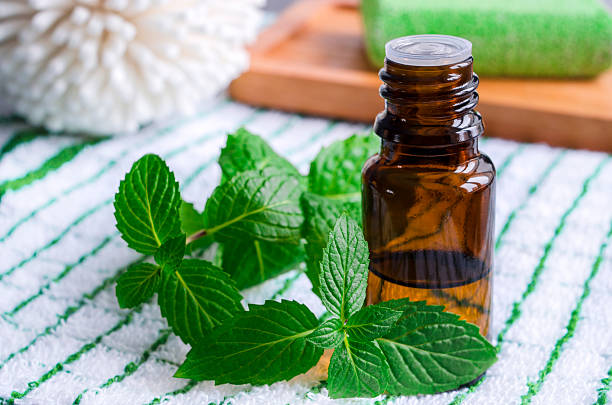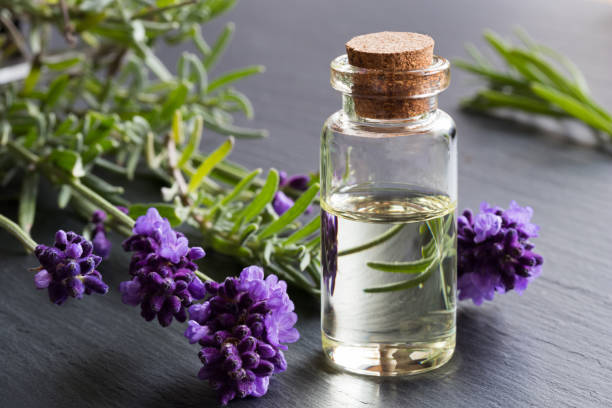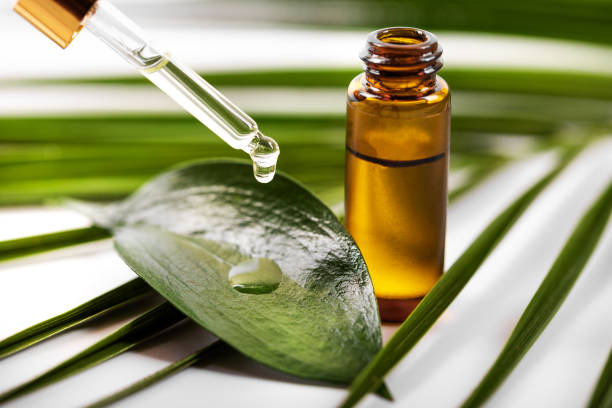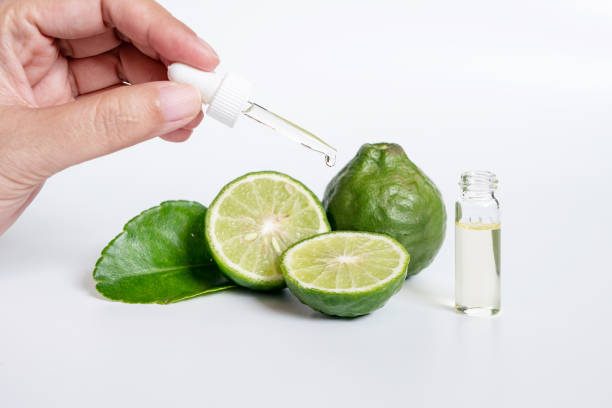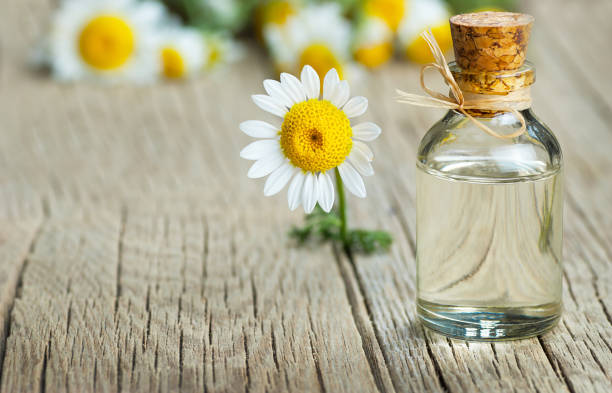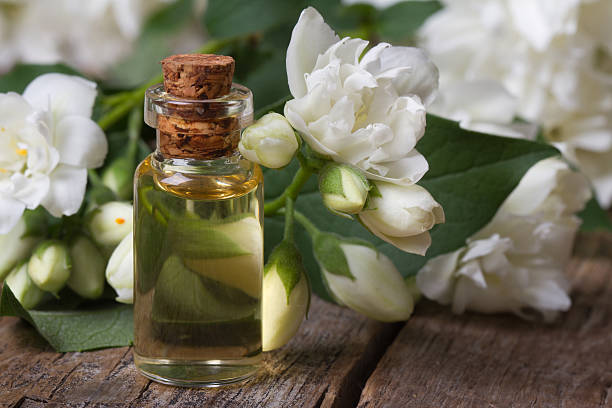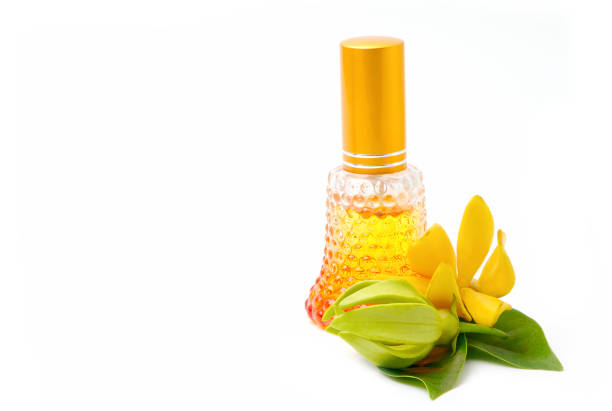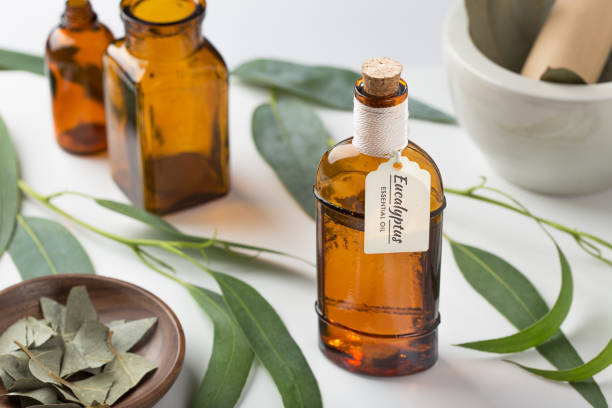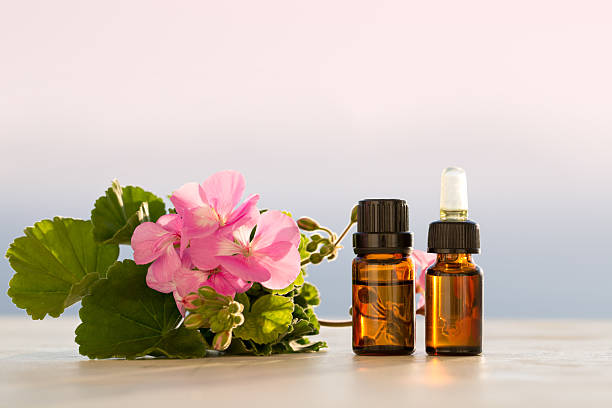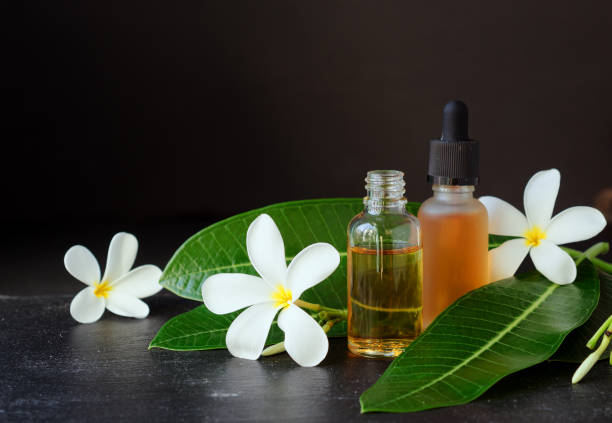The Organic Essential Oils
An organic essential oil is a liquid being distilled from the flowers, leaves or some other parts of a plant, in effect extracting or capturing the essence of plants in a highly concentrated form.
Introduction
The term Organic actually refers to an inclusive system including foraging or/and farming practices having the intentions of persevering quality of soil, contributing towards long-lasting sustainability and last but not the least, minimizing the utilization of synthetic practices.
What does the term “Organic” really mean?
The term ‘organic’ generally refers to a comprehensive and formal quality standard with regard to cosmetic raw materials, beauty products, animal or meat products, vegetables, fruits and many more. According to the USDA i.e. the US Department of Agriculture, the substances that are considered as certified organic basically symbolize an adherence and devotion to various necessities during the phases of the sourcing, production as well as processing. This also includes the following practices such as;
By conserving of soil health i.e. by avoiding the sewage sludge and by applying the manure.
By avoiding the utilization of prohibited substances such as the non-organic fertilizers, herbicides, some specific pesticides and various other extremely harmful addictives.
By controlling the diseases as well as the pests while utilizing a management approach of PAMS i.e. Prevention, Avoidance, Monitoring and Suspension.
By minimizing the contact between the non-organic crops and the organic ones.
By dynamically avoiding contact with the prohibited substances or/and non-organic and contamination throughout the process of production.
The NOP i.e. the National Organic Program is basically the official enforcing body under the USDA i.e. the US Department of Agriculture being responsible for the maintenance and sustenance of the national standards of labeling as well as manufacturing of organic goods. Also, they accredit both the international as well as local or national agents who in-turn first inspect and then enforce the national standards in order to ensure that they comply with the regulations of the US Department of Agriculture. Relying on the extent that the requirements are being met, the companies are then slowed or permitted for the sake of utilizing one of the four labels on their organic products such as;
Made with Organic
Organic
100% Organic
Organic Ingredients
Also, in terms of the relevance of the regulation and policies of the US Department of Agriculture in Canada, organic products get certified in either the state can be sold legally in both provided that the demands of the USCOEA i.e. the United States-Canada Organic Equivalence Arrangement are being fulfilled. In 2009, the United States-Canada Organic Equivalence Arrangement was instilled and now in the contemporary era, the Canada Organic along with the USDA Organic labels symbolizes the similar standards with a few exceptions.
Organic Essential Oils
An organic essential oil is basically a liquid being distilled from the flowers, leaves or some other parts of a plant, in effect extracting or capturing the essence of plants in a highly concentrated form. These oils are distributed purely than any other products such as perfumes being derived from the plants but comprise artificial elements. In fact, small amounts of these intoxicating oils have significant effective, healthy and therapeutic benefits depending on the plants being used.
What exactly makes an organic essential oil “Organic”?
Generally, the producers of organic food basically demonstrate a heartfelt commitment towards a more natural based and/or natural foraging as well as farming practices. This similar stance does apply to the organic essential oils. The companies along with the suppliers being dedicated to the organic standards are being committed to provide pure, safe and high-quality organic essential oils that have been extracted from the crops being subjected to organic and natural farming along with practices of production. Within the beauty and cosmetics industry, the companies as well as the producers who do seek to market the essential organic oils with the organic claims should definitely hold on to the standards being set by the governing authorities at the local level along with any other labeling restrictions or regulations in the locale in which they are sold. In the United States, the organic claims should hold on to the conventions of the US Department of Agriculture and the regulations of the USFDA i.e. the US Food and Drug Administration for the labeling as well as safety of cosmetics as being stated under the FD&C Act i.e. the Federal Food, Drug, and Cosmetic Act along with the FP&L Act i.e. the Fair Packaging and Labeling Act. The products should additionally be in conformity to the regulations of Health Canada label. Real essential ‘organic’ oil is basically the one that hasn’t been extracted by the use of as natural methods as possible, but also where the practices of framing have been mindful of the quality of soil, the launch of extremely harmful agents such as by avoiding the use of GMOs i.e. the Genetically Modified Organisms or the mono-cropping, and last but not the least, the end-to-end to processes of manufacturing as well as production of the oils are being accounted for with reference to chemical contaminants. In other words, the organic essential oils symbolize a philosophy and a practice that is being designed in order to be more supportive, healthy, sustainable and environmental friendly for the agricultural society as a whole.
How can one know if an essential oil is really organic?
The absence or presence of the organic certification is the merely reliable way of evaluating whether a particular essential oil product is really organic or not. A supplier or company can’t utilize an organic seal on their essential oil products by a reputed certifying authority or body such as the QAI i.e. the Quality Assurance International without complying with its regulations as well as restrictions. Conducting research about the company and then scrutinizing the label of the essential oil product for the authenticity indicators are significant beginning steps in order to take being a consumer. The companies producing essential oils, going voluntarily through the process of organic certification, get inspected or scrutinized as well as practically audited every single step of the way i.e. from the agricultural and planting practices of the supplier to the operations of manufacturing of the end product. A certified label on the essential oil product would represent the fruitful outcomes of such stringent and rigid procedure; a certified organic seal on an essential oil product symbolizes that the certain essential oil product has been validated as well as authenticated to be truly and purely organic.
The NDA i.e. the New Direction Aromatics hooks up with the respected suppliers all over the globe and further provides complete transparency with reference to one’s collection of organic essential oils. Almost, all of the essential organic oils are being certified by the USDA/NOP; the organic handling facility by the NDA undergoes audits on regular basis by the Quality Assurance International which is one of the leading organic authentic certifying bodies or authorities in the North America and being accredited by the US Department of Agriculture. In order to verify and then, maintain or sustain the integrity of the essential organic oils, rigorous and precise internal testing is being conducted utilizing gas chromatography and most importantly, all relevant/ appropriate documentation is being showcased and available freely and easily on each page of the essential organic oil products.
How do the organic essential oils and non-organic conventional oils differ from each other?
There are several differences between the essential organic oils and non-organic conventional oils which are as follows;
Appeal
Most of the people believe that it is possible enough to differentiate between the essential organic oils and non-organic conventional oils generally from their aroma and feel. The essential organic oils may smell good as compared to the conventional non-organic varieties due to the differentiation in their primary constituents. Moreover, the organic products have generally improved and advanced the appeal of customers and can further elevate a cosmetics line or a brand.
Safety
The certified essential organic oils basically originate from the herbs as well as plants that have met harsh requirements with reference to certain GMOs, pesticides along with synthetic fertilizers and therefore, may be healthy, sound and in general, less toxic. However, some people believe that because of the conditions of the steam distillation, which is usually how the essential organic oils are being produced, the chances of the pesticides going into the final product are nonetheless being minimized (the prominent exception being the cold-pressed oils). In both cases, those who are concerned about the impending and potential impacts of the chemicals or residues of the pesticide emerging from the cultivation process or the processing may buy essential organic oils for a much better peace of mind.
Cost
The organic essential oils are basically on the pricier side as they are much more expensive and costly to manufacture. The organic essential oils, generally speaking, can cost almost 20% - 70% i.e. more than their conventional non-organic counterparts.
Therapeutic value
The chemical composition of essential organic oil is actually what gives growth to its properties as well as its therapeutic values as it is possible enough for the ratio (percentage) of the primary constituents in order to distinguish between the essential organic oils and non-organic conventional oils along with from yield to yield, the consequential healing properties can vary too. It is basically being thought that the essential organic oils consist of a higher proportion, amount or ratio of desirable and beneficial active components or constituents and therefore, can have a better and effective contribution towards the application of aromatherapy.
Benefits of the Organic Essential Oils
Generally, these organic essential oils are being used in some type of aromatherapy. As the name implies, aromatherapy comprises controlled exposure to some specific scent or fragrance in order to foster emotional and mental well-being. Also, some of the practitioners of the alternative medicine advocate the use of organic essential oils as a topical treatment for specific illnesses or promote the consumption of these essential oils. These organic essential oils have a broad range of applications. Most of them are affiliated with mental health or emotional well-being along with various other effects or some of them may be consumed as antiseptics.
The Reasons behind the Organic Essential Oils
The Organic Essential Oils can be broadly classified into two types which are as follows:
Organic Oils
Non-Organic Oils
The Organic Essential Oils are extracted from the plants being grown without any artificial components or addictives and without pesticides. Most of the practitioners believe that the Organic Essential Oils are distinctly superior in a variety of ways such as;
The benefits
The scent/ aroma/ fragrance
The quality
The Non-Organic (conventional) oils are those oils in which the seed oils have to do with how the oil is being extracted from the seed as the seed oils of the Non-Organic (conventional) oils are generally solvent expelled as the hexane is usually not considered as organic one. Contrary to the Non-Organic oils, the Organic Essential Oils may be more expensive since merely a small quantity of these essential oils can be extracted or derived from a comparatively large-sized plant matter. Yet, the benefits of these Organic Essential Oils are totally worth the price in several cases; also, this is true about various other organic products as well which may be generally more potent, effective, intoxicating, healthier and last but not the least, purer than the Non-Organic oils i.e. free from artificial addictives or components or any kind of preservatives.
Types of the Organic Essential Oils
There are as many kinds of Organic Essential Oils as there are plants all over the globe. These essential oils may be extracted from a broad range of fruits, flowers, trees and some other products of a plant both unfamiliar as well as typical. Some of the most famous and trendy Organic Essential Oils being used in the aromatherapy consist of the oils of citrus fruit, lavender, ginger and peppermint. The popularity of the Organic Essential Oils is generally associated with its therapeutic effects. Also, there are various regional considerations as well in this regard i.e. the areas where the oranges are being grown can offer steadier access to the orange oil. Some of the most essential organic oils being widely used by the people around the globe are as follows:
Lavender Essential Organic Oil
This exceptionally renowned oil has basically all types of benefits. This subtly and delicately floral aroma can actually help individuals in order to stay calm and relax. In addition to that, breathing this oil in has been found to assist with eliminating various headaches while the application of this oil, typically, can help reduce swelling as well as itching from the bug bites. There are a few identified side effects of the Lavender oil such as the vomiting, chills, headaches as well as nausea. Also, it can irritate the skin if one is intolerant to Lavender oil.
Roman Chamomile Essential Organic Oil
Featuring a blend of a herbal scent and a light floral aroma, this essential organic oil basically has the potential in order to put one’s mind at ease and has been found for the sake of treating various conditions such as the Eczema and inflammation on the skin. Also, anyone being allergic to ragweed, marigolds as well as daisies should definitely avoid using the Roman Chamomile essential organic oil overall.
Rose Essential Organic Oil
When the pleasing, floral and sweet aroma of the rose oil is being inhaled, it seems to be pretty helpful in reducing anxiety and stress. The antioxidant properties of the rose oil have been found in order to help improve complexion and treat acne for a younger look overall. When used topically, irritations on the skin can occur so make sure that the usage of the carrier oil is maximized if one wants to gain the benefits of skin care by the rose oil.
Hyssop Essential Organic Oil
This sweet-scented, herbal as well as earthy essential organic oil can be used easily on the skin in order to help reduce the scarring and then further, minimize the skin inflammation and last but not the least, act as a healing agent overall. It is definitely not preferable to use the Hyssop essential organic oil if one has a history of seizures or a woman is pregnant.
Ylang Ylang Essential Organic Oil
This flower essential organic oil secrete a spicy but a sweet fragrance and has been considered as helpful in providing relaxation i.e. a self-esteem builder and also, it even acts as a repellent towards specific insects as well. It’s recurrently being found in cosmetic products and thus, guarantees a laundry list of beauty-benefits comprising various treatments related to promotion of hair growth as well as combination skin.
Myrrh Essential Organic Oil
This sappy-scented essential organic oil is being said to treat various issues related to skin by simply relieving the cracked and acne skin and this may also help to treat the athlete’s foot. This essential organic oil shouldn’t be taken ■■■■■■ ever. If it is being used topically, then keep one thing in mind that it has been found to be the reason behind dermatitis. More serious and severe side effects consist of lower blood pressure along with the heart irregularities. Also, it can maximize the risk of miscarriage if being taken by women who are pregnant.
Vetiver Essential Organic Oil
The sugary and smoky aroma of the Vetiver essential organic oil is mostly being used in the soothing aromatherapy in order to boost one’s overall mood as well as relax the nerves. Coming towards its benefits as an antioxidant, then it has been found to help improve the heal scars along with the skin health. Since the Vetiver essential organic oil is non-sensitizing and non-irritating, it is also a great contemporary substitute for those who simply cannot handle other essential organic oils.
Frankincense Essential Organic Oil
The scent of this oil may smell like a holiday season to people, but also, it has all types of disinfectant, antiseptic, digestive and last but not the least, astringent properties. It may prevent ■■■■ problems such as mouth sores, cavities, toothaches as well as bad breath and it is even suggested that it can also help to improve the skin health. Apart from the potential sensitivity of the skin, the users can easily rest knowing that there are not basically any kind of major side effects while using frankincense essential organic oil.
Grapefruit Essential Organic Oil
Although, this is also being extracted from a citrus fruit, the peel to be very accurate, but it has more of a fresh as well as bitter scent and is also popular organic oil in order to use in a diffuser. It has been found to have antifungal features that may help to reduce any kind of harmful and destructive bacteria inside. Similar to lemon, it also avoids the UV sun rays while topically applying.
Cedar wood Essential Organic Oil
Naturally and earthy woody-smelling, this Cedarwood Essential Organic Oil is being used for a number of topical and trendy treatments for skin-beauty. Research has explored that such benefits include reducing dandruff, treating eczema as well as fighting acne. Also, on the top of all this, it supposedly helps to relieve coughing and reduce arthritis. It is essential to take one thing into consideration that none of such benefits comes from consuming or ingesting the Cedar wood Essential Organic Oil as it is actually not safe to use this oil and if it’s done then the consequences would be severe such as thirst, nausea, vomiting and last but not the least, damaging of the digestive system.
Peppermint Essential Organic Oil
When the minty herbal aroma of this Peppermint Essential Organic Oil is being inhaled, then it can help to relieve the symptoms of IBS i.e. the Irritable Bowel Syndrome. Similarly, a restricted amount of evidence is being found that this essential oil can actually help with issues related to indigestion as well as headaches. When applied, the user can sense a cooling and soothing effect immediately. This can also help with certain medical issues such as relief from sunburn, pain in muscles and last but not the least, various skin conditions such as insect bites or poison ivy. It helps to maximize the exercise performance as well. This oil shouldn’t be consumed as it can be the reason behind severe side effects such as mouth sores, an irritated esophagus, headaches and heartburn.
Spearmint Essential Organic Oil
This is another minty option which is pretty similar to the Peppermint Essential Organic Oil in both benefits as well as aroma, thus it can be easily used as an alternative too. This oil has a bit of sweet scent and has been found to have antifungal or antimycotic properties. Also, it provides the similar cooling and soothing effect as the Peppermint oil when topically applied, which further makes it equivalent as helpful for forwarding off various unwanted insects as well as in relieving the bug bites. If a woman is ■■■■■■■■■■■■■ or pregnant, then consultation with a doctor is necessarily required before using this oil.
Basil Essential Organic Oil
The essential oil being extracted from the Basil has so many internal as well as topical benefits. It is both anti-inflammatory and antiviral, so it could work as a remedy for flu and cold along with a muscle relaxer. Also, it has been found to be one of the best organic products to reduce stress levels. It is also used to treat hair in order to enhance shine and growth as well as to get rid of buildup. If a woman is ■■■■■■■■■■■■■ or pregnant, then consultation with a doctor is necessarily required before using Basil oil.
Melaleuca Essential Organic Oil
Generally, it is also known as tea tree oil and it is quite unproblematic to identify its medical fragrance. Typically, it is being used as an antiviral, anti-inflammatory and anti bacterial treatments. Moreover, the Melaleuca Essential Organic Oil is also used to treat hypersensitivity. It is also being used to help treat bug bites, staph infections, eczema and last but not the least, to minimize reactions in individuals being allergic to nickel. Topically, one should only apply or inhale this oil but don’t go for its consumption ever. In case, someone ingested it then dizziness, hives or digestive issues can happen. This oil is available in a broad range (variety) of strengths. If it is pure then be sure enough to dilute it. Also, it is possible to be allergic and sensitive to the Melaleuca Essential Organic Oil or tea tree oil.
Lemon Essential Organic Oil
This citrusy Essential Organic Oil is actually being loaded with antioxidants that can basically help to relieve nausea, boost energy levels, fight against anemia and reduce inflammation. It can be easily used on the skin in order to nourish it but keep one thing in mind that it should only be used at night and then washed off right in the morning because it is incredibly and exceptionally photosensitive. Hence, don’t expose the skin, after application, when using the lemon organic oil topically.
Arborvitae Essential Organic Oil
This lesser-known Essential Organic Oil does emit a woody aroma and is also said to help reduce the stress levels and repel bugs. One of the main draws is the supposed ability of this oil to promote a glowing and healthy complexion. If it is being inhaled too much, rapidly, then it can extremely irritate the lungs along with the respiratory tract. As it has been shown to be toxic and lethal so don’t take it ■■■■■■.
Orange Essential Organic Oil
It is no surprise at all that this essential organic oil is being loaded with vitamin C and has tons of benefits regarding skin care when being applied topically. This oil is also found in a broad range of beauty products and flaunts pledges in order to make the skin look clearer, smoother as well as brighter. As for the benefits based on health, the research has found that this essential organic oil helps to relieve the pain or ache and also, to treat issues related to anxiety. This zesty and bold citrus oil is not without its downfalls so dilute it well. Do not apply it directly on the skin ever otherwise swelling and redness can happen and also, be sure enough to evade sunlight right after its application.
Helichrysum Essential Organic Oil
This oil smells like a blend of hay and honey and also features anti-inflammatory, antifungal, antimycotic, antibacterial as well as antioxidant properties that can be helped to promote external and internal health. When being applied to skin topically, it can help to treat psoriasis, acne and athlete’s foot. Generally, it is considered as safe oil and thus, has few allergic reactions further making it an ideal option especially for those having issues related to skin sensitivity.
Cassia Essential Organic Oil
This Essential Organic Oil is being derived from the plant of cinnamomum cassia and it has a similar spicy and warm aroma to the actual cinnamon, although it is a bit sweeter as well. The Cassia Essential Organic Oil basically warms up the body, unlike the cooling impact of the minty oils, which can further leave the users feeling calm, tranquil and serene. If a woman is pregnant, then she shouldn’t use this oil at all.
Oregano Essential Organic Oil
This spiced organic essential oil has antifungal, antimycotic, antiviral as well as antibacterial benefits that can help treat warts, psoriasis, bacterial infections along with the athlete’s foot. Also, it has strong and effective antioxidant properties and could help to treat certain medical issues such as respiratory symptoms and fevers, too. Its spicy and sharp aroma along with the hints of some herbal tendencies can also be applied to bring in its benefits topically and used in aromatherapy, too. If a woman is ■■■■■■■■■■■■■ or pregnant, then consulting a doctor is necessarily required before using Oregano Essential Organic oil.
Are Organic Essential Oils really that superior?
In several ways, it is quite hard and problematic to deny that the Organic Essential Oils are actually exceptional with regard to their performance, effectiveness, characteristics, components, aroma, therapeutic features, safety, purity, and last but not the least, quality. Indeed, there is basically a widespread and broad perception that this is so. In the contemporary era, some of the research does exist in order to support this point of view. For instance, in 2014, the researchers did steam-distill the roots of Vetiver in Indonesia being grown conventionally as well as organically, and then further, analyzed the distinction between these two. In general, the researchers did decide that the variety of the Vetiver organic oil was of a supreme quality being based on a collection or compilation of indicators consisting of the residue of pesticides, yield and most importantly, the analysis of the chemical constituents. However, it is significant to understand that the outcomes of this only research study can’t be generalized to some other essential oils or even to the Vetiver organic oils deriving from other states in the world. However, there are also several misconceptions as well as myths surrounding the organic goods consisting the Organic Essential Oils, most specifically which are as follows;
One of the huge misconceptions most people believe that a product having an organic seal symbolizes that the Organic Essential Oil product is totally free from the pesticides. Well, this isn’t entirely true at all. Firstly, the organic farmers are being permitted in order to utilize the organic pesticides such as the microorganism and some others originated from the botanical roots along with the synthetic or artificial pesticides if they are on the list of substances being approved and certified, in line with the strategy of the PAMS i.e. Prevention, Avoidance, Monitoring and Suspension for the sake of controlling the pest. Secondly, the pesticide chemicals can still prevail as the pesticide residues which basically pollute the environment or atmosphere, in turn, at very large scales; therefore they can’t be easily eradicated and exterminated. So, while the prediction or manufacturing of the Organic Essential Oils significantly minimizes the utilizations of the toxic and contaminated pesticides along with the hazard of contact of the pesticide residue, it can’t eliminate its presence and existence, totally.
Another huge misconception among the individuals is that the Organic Essential Oils are superior universally to the Non-Organic (conventional) oils with regard to the quality. There are so many Non-Organic essential (conventional) oils from various reputable and sound companies that still produce or manufacture very high quality products. Indeed, there is no doubt that in New Jersey, USA, the researchers exactly remind that the farming of the organic goods itself symbolizes a system of agricultural production and also, this doesn’t mean that the producers of the organic goods are focusing necessarily on the quality of essential oils themselves. Due to this, the integrity as well as quality of any essential oil, either organic essential oils or non-organic conventional oils, should still be evaluated properly and appropriately. Nonetheless, few individuals would disagree that the practice along with the philosophy behind the farming for organic production isn’t making an optimistic contribution and involvement towards the conservation of the natural resources and most importantly, the environment. While the production of organic goods isn’t a perfect and appropriate process, it could be argued that it paves the path towards the production of essential organic oils with reference to an optimistic environmental impact as well as quality standards.
Conclusion
Therefore, in the contemporary era, the demand of the consumer for the organic products such as the essential organic oils is at an all-time high. The certified essential organic oils do embrace the organic practices as well as the organic philosophies having numerous positive and effective implications for the agricultural world, the manufacturers, and the consumers at the global level such as by contributing towards an overall long-lasting sustainability, preserving the health of soil, assisting in order to reduce the extremely toxic residues from the pesticides and last but not the least, inclining towards more farming based on natural methods. However, it is also significant to remember that the high-quality and premium oils along with the non-organic conventional essential oils are not mutually exclusive, necessarily. It is significant to purchase the oils either organic or non-organic from a well-reputed vendor or a company that is evenly dedicated to the transparency as well as quality for the customers such as by going through stringent, inflexible and rigid certification processes of the organic products and also, by conducting a comprehensive and inclusive internal testing.












